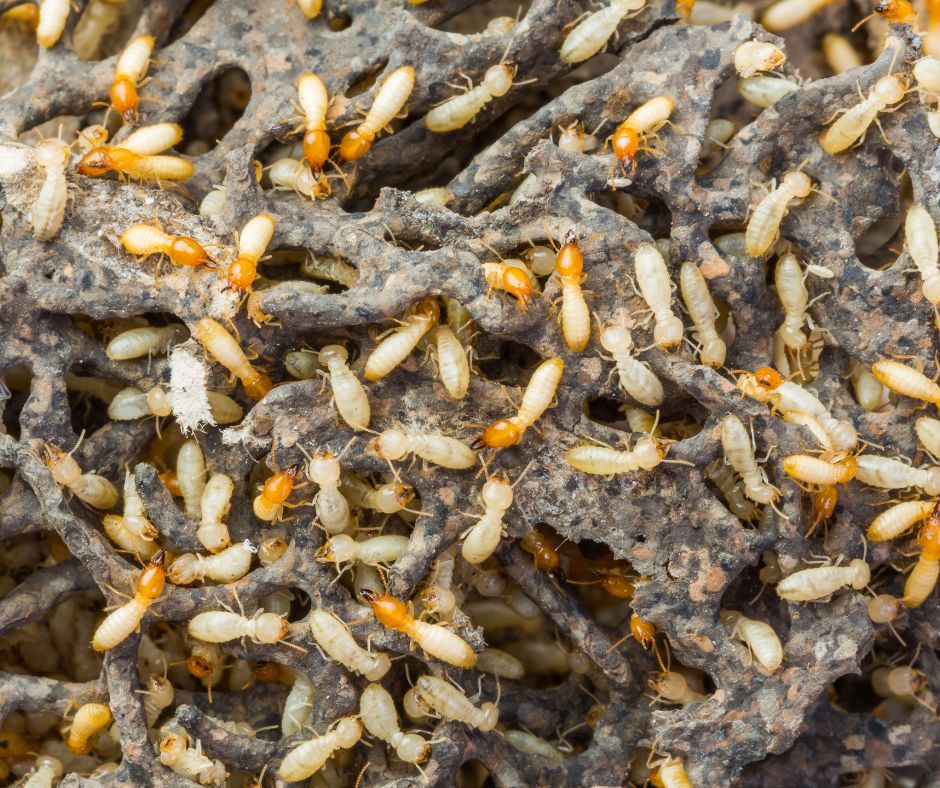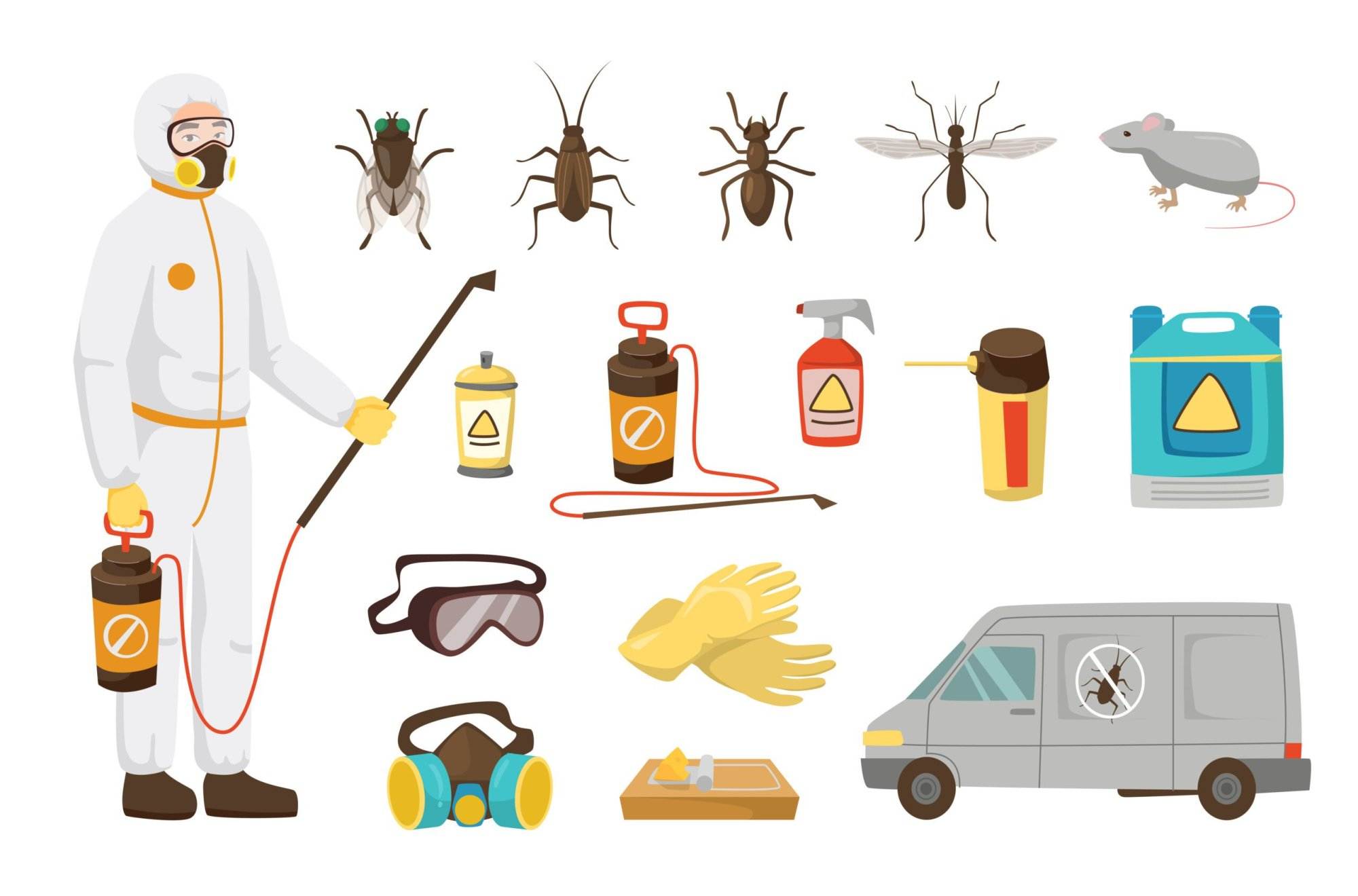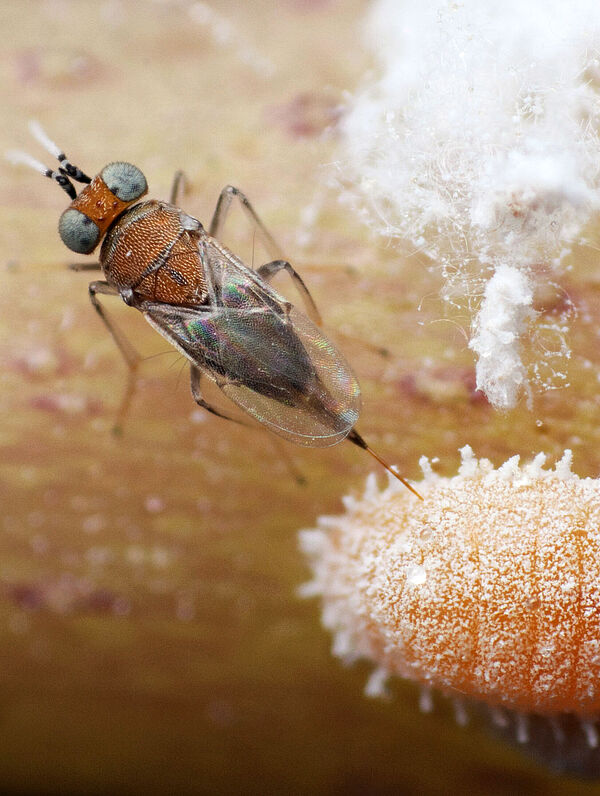Reliable Termite Treatment Port Charlotte to Defend Your Home
Wiki Article
Find Out About the Most Recent Developments in Pest Control and Just How to Execute Efficient Treatment Solutions
In recent times, the area of pest control has witnessed considerable innovations, driven by the need for effective and lasting therapy services. Innovative approaches such as Integrated Bug Management (IPM) combine eco-friendly experiment sophisticated technology, enhancing both efficacy and environmental obligation. The assimilation of clever modern technologies and Do it yourself techniques has actually equipped people to tackle parasite concerns more properly. As we discover these growths, it becomes necessary to recognize exactly how best to implement these techniques in numerous settings to accomplish optimal outcomes. The implications for pest management practices could be transformative.Eco-Friendly Parasite Control Options
In the last few years, the demand for green insect control alternatives has risen as services and homeowners alike look for lasting choices to traditional chemical therapies. This shift is driven by expanding ecological awareness and a desire to minimize the health risks associated with synthetic pesticides.

Eco-friendly parasite control methods incorporate a variety of strategies that prioritize the use of natural substances and practices. Integrated Pest Management (IPM) is one such method, integrating biological, social, and mechanical techniques to take care of insect populations while lowering dependence on chemicals (Wildlife removal services). This alternative approach emphasizes prevention through habitat manipulation and the intro of all-natural killers, thus cultivating a well balanced community
Another prominent option is making use of herb chemicals originated from plants, which tend to be less damaging to non-target microorganisms. Products like neem oil and diatomaceous planet have obtained grip for their performance in managing bugs while posing marginal dangers to human health and wellness and the setting.
Additionally, exclusion techniques, such as sealing entrance factors and keeping sanitation, play a crucial duty in environmentally friendly bug administration. By taking on these lasting methods, people and companies can successfully manage insects while advertising a healthier earth for future generations.
Smart Technology in Bug Management
Technology is improving the landscape of insect monitoring, with smart innovation becoming a crucial force in boosting effectiveness and effectiveness - Wildlife removal services. The integration of Net of Things (IoT) gadgets, expert system (AI), and data analytics is revolutionizing how insect control experts come close to problems
Smart traps geared up with sensors can find pest task in real-time, sending immediate informs to operators. This enables prompt feedbacks, lessening damage and reducing the need for comprehensive treatments. Additionally, AI algorithms examine historical data to forecast bug actions, making it possible for aggressive treatments based on environmental conditions and problem patterns.
Drones and automatic automobiles are also playing a considerable function in pest management, giving aerial evaluations of huge locations, determining hotspots, and also dispersing targeted therapies. These innovations not just streamline procedures yet additionally improve safety and security by limiting human exposure to possibly unsafe chemicals.
Furthermore, mobile applications encourage consumers to keep an eye on pest task and accessibility specialist recommendations, promoting a collective approach to pest management. In general, the adoption of smart modern technology is setting a brand-new requirement in insect control, stressing data-driven choices and sustainable practices that inevitably benefit both professionals and home owners alike.
Integrated Pest Management Techniques
Integrated Insect Administration (IPM) employs an all natural technique to pest control, combining different methods to properly manage parasite populations while decreasing risks to human health and wellness and the setting. IPM focuses on understanding the pest life cycle, their all-natural opponents, and the ecosystem in which they grow.One of the essential parts of IPM is keeping track of pest populations via normal examinations and information collection. This allows for the recognition of pest limits, identifying when treatment is necessary. Social methods, such as crop rotation, hygiene, and habitat manipulation, are essential in reducing insect prevalence and promoting plant health.
Mechanical controls, consisting of traps and barriers, are additionally crucial in IPM. These approaches can literally get rid of or hinder parasites without using chemicals. When essential, the judicious application of chemical controls is used, focusing on targeted therapies that reduce ecological impact.
Education and learning and cooperation among stakeholders, consisting of farmers, pest control professionals, and the area, are vital for the successful application of IPM approaches. By prioritizing lasting practices, IPM not only addresses pest problems however likewise cultivates a healthier ecosystem.
Biological Control Approaches
Many organic control methods are progressively recognized for their performance in managing parasite populations while advertising environmental equilibrium. These methods harness all-natural predators, bloodsuckers, and microorganisms to lower pest numbers without depending on artificial chemicals. The intro of ladybugs can properly control aphid populations, while nematodes target soil-dwelling pest larvae.In addition, making use of microbial chemicals, such as Bacillus thuringiensis (Bt), offers an ecologically pleasant option for taking care of caterpillar pests. These products particularly target pest species, decreasing injury to helpful pests and pollinators. In addition, preservation biological control highlights improving environments for all-natural adversaries, such as birds and helpful bugs, therefore encouraging their existence in agricultural systems.
Study proceeds to reveal ingenious approaches within this field, such as using scents to interrupt pest breeding patterns or the development of biocontrol agents with genetic modification. Executing these approaches can result in sustainable bug monitoring methods that mitigate the dependence on chemical interventions, inevitably promoting much healthier communities. As awareness of these techniques expands, they are ending up being important elements of integrated pest management (IPM) strategies, using an equilibrium between reliable pest control and ecological stewardship.
Do It Yourself Bug Control Solutions
As homeowners look for reliable ways to tackle parasite concerns, do it yourself insect control solutions have actually acquired appeal for their ease of access and cost-effectiveness. These methods encourage individuals to resolve infestations using conveniently offered materials and techniques, often without the demand for specialist intervention.
Furthermore, keeping correct cleanliness and routine evaluations can prevent pest access and nesting (Wildlife removal services). Simple practices, such as sealing cracks, removing food resources, and decluttering, can considerably reduce insect populations. Traps, both homemade and commercially available, can likewise offer reliable options for surveillance and controlling details insects like rats or pests

Conclusion
The integration of green parasite control alternatives, clever modern technology, and innovative monitoring approaches provides an extensive technique to efficient pest management. By accepting Integrated Parasite Management (IPM) and using organic control techniques, together with DIY remedies, lasting and liable insect control Bed bug exterminator Port Charlotte can be accomplished. These improvements not just improve the efficiency of bug administration techniques but likewise contribute to a much healthier environment. Implementing these techniques fosters a well balanced ecological community while properly addressing pest populaces.Environment-friendly parasite control techniques encompass a variety of strategies that focus on the use of natural compounds and techniques. Integrated Insect Management (IPM) is one such strategy, combining biological, cultural, and mechanical techniques to manage bug populations while minimizing reliance on chemicals. As awareness of these techniques grows, they are ending up being important parts of incorporated parasite management (IPM) strategies, providing an equilibrium between reliable pest control and ecological stewardship.
The combination of environmentally friendly insect control alternatives, smart modern technology, and cutting-edge management approaches presents a detailed approach to effective pest monitoring. By accepting Integrated Insect Management (IPM) and making use of organic control approaches, together with DIY services, liable and sustainable bug control can be achieved.
Report this wiki page